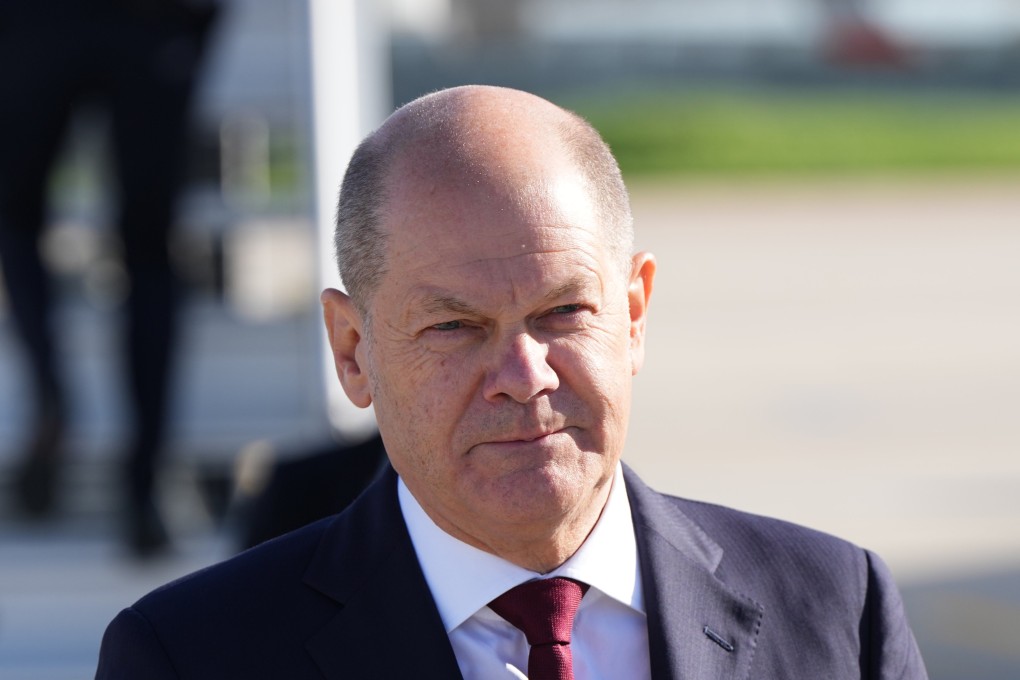Advertisement
German Chancellor Olaf Scholz to visit China next week
- Scholz will be the first Western European leader to go to Beijing since the start of the coronavirus pandemic
- Opposition politician says trip with business delegation sends to the wrong message at home and abroad
Reading Time:3 minutes
Why you can trust SCMP
24

Finbarr Berminghamin Brussels
German Chancellor Olaf Scholz will visit China on November 4 at the invitation of Chinese Premier Li Keqiang, the Chinese government confirmed on Friday.
The long-expected trip was confirmed by the chancellor last week, but he did not give a date.
Scholz will be accompanied by a delegation of major German companies, and will also make stops in Vietnam and Singapore, before going to Bali for the Group of 20 summit in mid-November.
Advertisement
The visit will be Scholz’s first meeting with Chinese President Xi Jinping since becoming leader of the governing coalition last year, and will make him the first Western European leader to visit China since the coronavirus pandemic.
The South China Morning Post first reported in July that Beijing had invited Scholz, along with other Western European leaders, to meet Xi.
Advertisement
Bloomberg reported the business delegation would include representatives from Adidas, Deutsche Bank, Siemens, vaccine maker BioNTech, Volkswagen and BMW, chemicals giants BASF and Wacker Chemie, and pharmaceutical firms Bayer and Merck.
Advertisement
Select Voice
Select Speed
1.00x